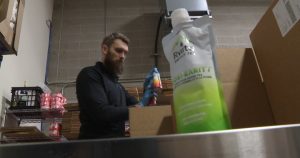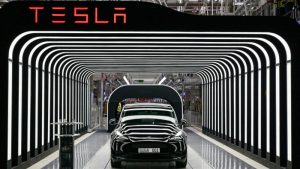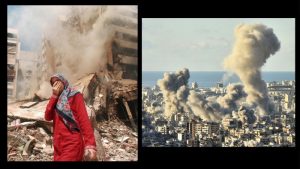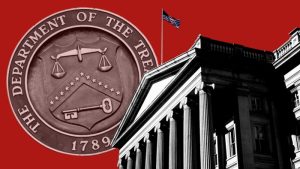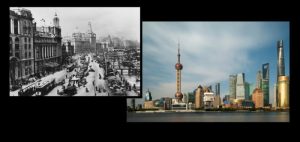HSBC splits east from west in major overhaul
This article is an on-site version of our FirstFT newsletter. Subscribers can sign up to our Asia, Europe/Africa or Americas edition to receive the newsletter every weekday. Explore all of our newsletters here
In today’s newsletter:
-
HSBC splits east from west
-
The son of Singapore’s founder is granted UK asylum
-
Why Xi changed his mind on China’s stimulus
Good morning. HSBC has announced a sweeping reorganisation that will split the Asia-focused bank into four standalone units serving “eastern” and “western” geographical regions.
Under the plan announced yesterday, HSBC will turn its UK and Hong Kong businesses into standalone units — a major overhaul for a lender that has touted its credentials for decades as one of the world’s few truly global banks.
The other two units will be “corporate and institutional banking” and “international wealth and premier banking”. Businesses within these units will fall either into the “eastern markets” section of Asia-Pacific and the Middle East or a “western” one including operations in the UK, Europe and the Americas.
The restructuring comes as new chief executive Georges Elhedery seeks to cut costs and better navigate geopolitical tensions between China and the west.
The bank plans to shrink its top management layer by a third, but it did not say if it would start cutting jobs. The FT previously reported that Elhedery was planning a $300mn cost-cutting drive that would target senior bankers. Here’s more on the changes coming for HSBC.
And here’s what else I’m keeping tabs on today:
-
Economic data: Singapore releases September inflation data and Taiwan reports industrial output for the month.
-
Tokyo Metro IPO: The subway operator will list its shares on the Tokyo Stock Exchange in Japan’s biggest initial public offering in six years.
-
HKEX results: The Hong Kong stock exchange reports third-quarter results.
Five more top stories
1. The son of the late Lee Kuan Yew, the modern-day founder of Singapore, has been granted political asylum in Britain. Lee Hsien Yang and his wife have been in self-imposed exile in London since 2022, and successfully argued that they would face persecution if they were to return to Singapore. Read about the dynastic feud at the heart of their case.
2. Taiwan Semiconductor Manufacturing Company has said it alerted the US government to a potential attempt to have it manufacture artificial intelligence chips for Chinese tech giant Huawei in circumvention of export controls. TSMC’s statement follows a report last week that the Department of Commerce was investigating whether the Taiwanese company had been violating US export controls by making AI or smartphone chips for Huawei.
3. Greater global protectionism will endanger the world’s growth outlook, the IMF warned in its latest forecast, as a possible Donald Trump victory in next month’s US election raises the prospect of sharp tariff increases. The Republican candidate has called for an overall 20 per cent tariff on all US imports and a 60 per cent penalty on Chinese goods.
4. A senior Volkswagen executive has been deported from China, in another setback for the German group in the world’s biggest car market. Chief marketing officer Jochen Sengpiehl was detained in China for about 10 days after allegedly testing positive for drugs following a holiday abroad, according to two people with knowledge of the details.
5. A UK-based activist fund Palliser Capital has taken a stake in Tokyo Tatemono, one of Japan’s biggest property groups, and is calling for divestments and a strategy overhaul. The campaign comes as Japanese companies face growing pressure from foreign investors to improve market valuations and raise corporate governance standards.
The Big Read

After resisting calls for fiscal stimulus for years, Xi Jinping has made a sudden U-turn. Today’s Big Read explores why the Chinese leader changed his mind — and whether it will be enough.
We’re also reading . . .
-
China’s luxury sector: Despite the economic uncertainty weighing on Chinese consumers, Italian luxury brand Moncler sees great potential in the country.
-
Books: Patriot, the memoir of Vladimir Putin’s murdered opponent Alexei Navalny, is a worthy testament to his courage, defiance and humour, writes FT Moscow bureau chief Max Seddon.
-
Pakistan’s flood recovery: With 12mn victims languishing in tents, the debt-burdened country is a disappointing test case for global financial co-operation aimed at helping countries rebuild after extreme climate events, officials said.
Chart of the day
Europe’s share of global commercial clinical drug trials almost halved over the past decade as pharmaceutical companies turned to the US and China to take advantage of their simpler regulatory regimes, according to industry representatives.

Take a break from the news
Nilanjana Roy, who has a “modest” collection of 4,000 books, confronts a dilemma that all bibliophiles eventually face when the ever-growing stacks around the house threaten to fall: to keep, or not to keep old books.

#HSBC #splits #east #west #major #overhaul
